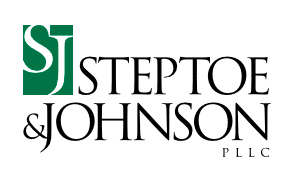
Published Via JD Supra Platform
There are over 2,000 pending federal trademark applications for supplements containing cannabidiol (“CBD”). None of these applications is likely to proceed to registration under current law.
Since the game changing Trademark Trial and Appeal Board decision last summer in In re Stanley Brothers Social Enterprises, LLC, 2020 U.S.P.Q.2d 10658 (TTAB 2020) refusing federal trademark registration to nutritional and dietary supplements containing CBD, intellectual property attorneys who advise supplement manufacturers have carefully considered alternative paths for brand protection.
The Agricultural Improvements Act of 2018 (“the Farm Bill”) initially appeared to pave the way for new lawful uses of hemp derivatives by removing them from the Controlled Substances Act (if exhibiting a delta-9 THC concentration of not more than 0.3 percent on a dry-weight basis). However, the road to trademark registration for certain consumer products including hemp extracts was quickly hampered by a second obstacle – the Food and Drug Administration’s regulation of food and drugs.
The United States Patent and Trademark Office (“USPTO”) has long maintained that to qualify for a federal trademark registration “use of a mark in commerce must be ‘lawful.’” This seemingly straightforward policy statement merely begs the question of lawfulness of supplements more generally, which then brings us to this second obstacle — the application of the federal Food Drug & Cosmetics Act (“FDCA”).
The FDA has deemed CBD an active ingredient in an approved drug, namely Epidiolex® (cannabidiol) to treat epilepsy. Under the FDCA this approval renders CBD a “drug” that when added to a “food” gives rise to a violation of federal law — even if the CBD ingredient was undisputedly lawful as derived from industrial hemp under the Farm Bill’s definition.
Many with expertise in the field believe the USPTO’s decision may paint with too broad a brush in treating all CBD as equivalent, when in fact the CBD of the FDA approved Epidiolex differs from hemp extracts that may contain different cannabinoids with distinguishing characteristics.
Nevertheless, for now, any trademark application for goods that are marketed as foods, dietary supplements, or nutritional supplements containing any amount of any chemical composition of CBD will be refused registration by the USPTO.
So how should a supplement manufacturer who plans to invest heavily in the development of CBD ingestible products proceed before the USPTO today?
In considering new filings for supplements, discuss the following with your attorney:
- Do you need to specify the ingredients of your products in your trademark application? The USPTO Identification of Goods Manual permits applicants to adopt more general descriptions including “nutritional supplements” in International Class 5.
- Do you have secondary products that are sold under the same brand, for example topical applications, that could form the basis for a problem-free USPTO application?
- Do you or could you produce and market a non-CBD containing product to be marketed under the same brand name in order to create space for your brand on the USPTO Principal Register while the legal landscape continues to unfold?
- Could you avoid claiming any medical or physical benefits in your USPTO application? It is never required and will only create additional grounds for refusal.
- Must your product be ingestible, or is it a product that may be characterized a topical product to avoid USPTO refusal?
- Do you need a federal trademark registration in the first instance?
https://www.jdsupra.com/legalnews/trademark-protection-for-cbd-supplements-3879160/





